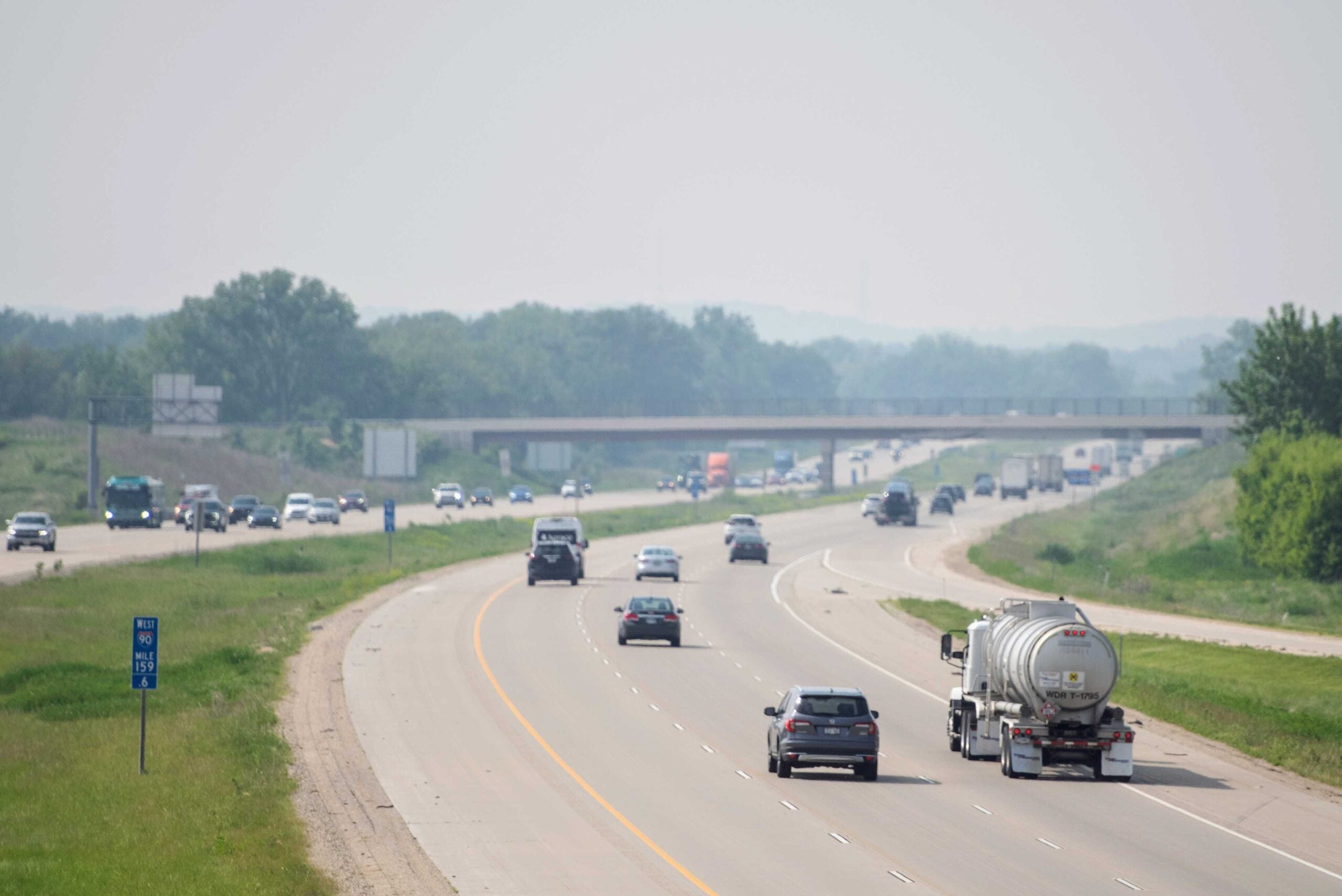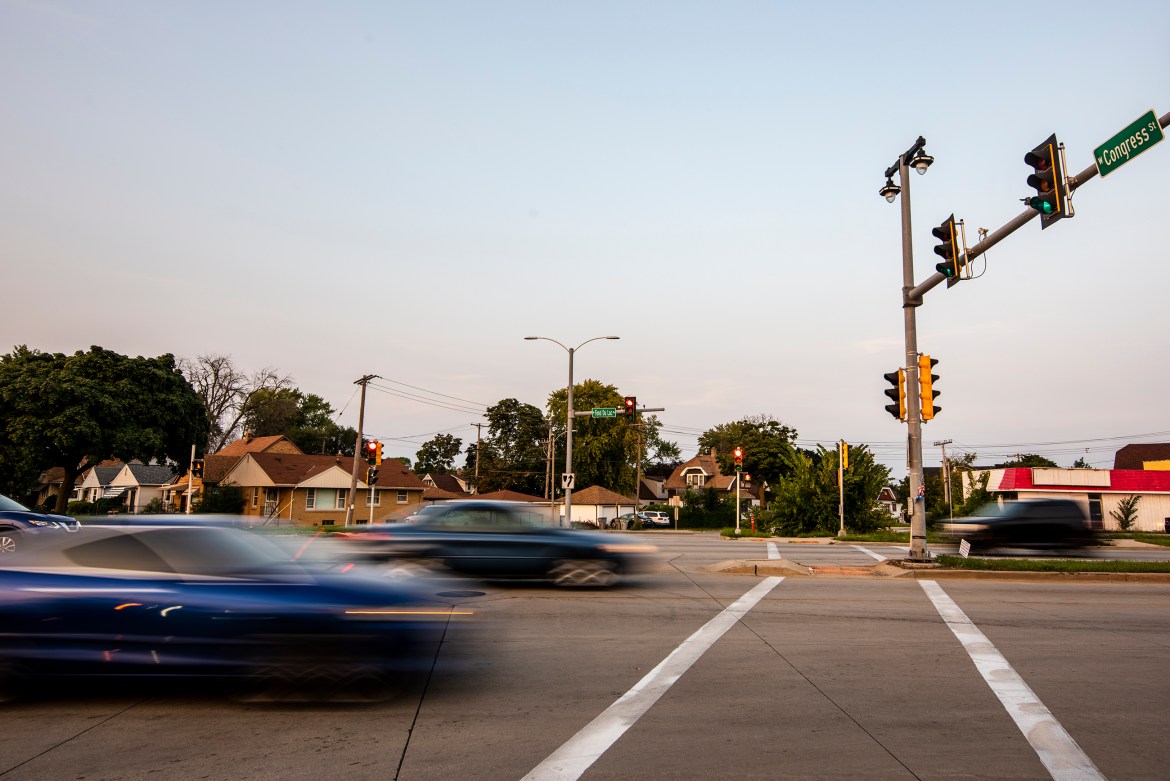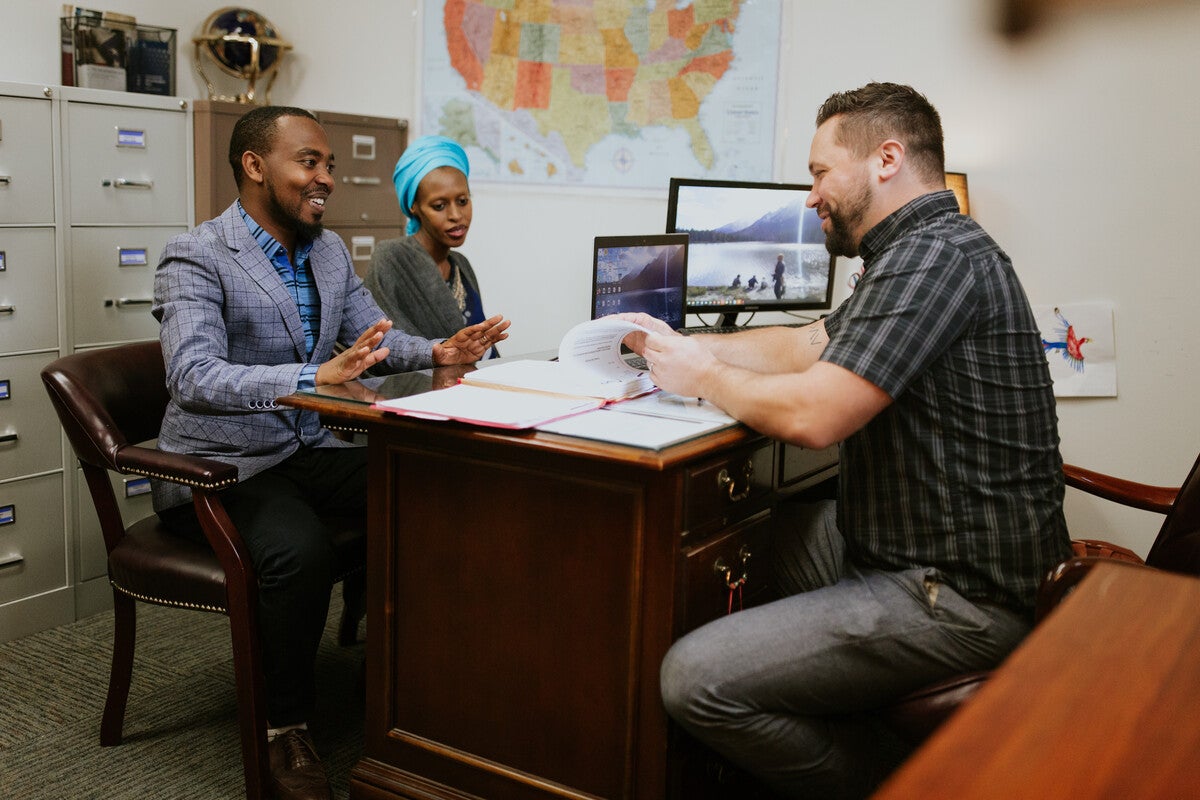Local elected officials would have to be notified about refugee resettlement plans under a bill introduced by Republican lawmakers from the Eau Claire area.
The proposal comes at a time when a nonprofit group is planning to bring 75 refugees to the Chippewa Valley, a move that has sparked concerns about whether the city and county can afford to support the individuals.
The bill introduced by Rep. Karen Hurd, R-Fall Creek, and seven GOP colleagues would require an employee of a local government to be contacted by the federal government or a nonprofit resettlement agency about proposed placements of refugees to notify local governments within a 100-mile radius. Those local governments would then be required to hold public hearings on the plans and pass resolutions in support or opposition.
News with a little more humanity
WPR’s “Wisconsin Today” newsletter keeps you connected to the state you love without feeling overwhelmed. No paywall. No agenda. No corporate filter.
The legislation is directly related to plans by the World Relief nonprofit to resettle around 75 refugees in the Chippewa Valley by Sept. 30, 2024. A website from the organization states refugees have been found by the U.S. government to have well-founded fears of persecution related to race, religion and political opinions in their home countries. The site says World Relief doesn’t know what countries the refugees will come from, but the majority of refugees resettled in Wisconsin this year came from Burma and the Democratic Republic of Congo.
World Relief did not immediately respond to a request for comment Wednesday.
Hurd told WPR the bill is needed because members of the Eau Claire County Board didn’t know about discussions between Eau Claire City Manager Stephanie Hirsch and World Relief for months.
“They have to be consulted and they weren’t consulted,” Hurd said. “They didn’t have anything to do with it until after the fact, months and months later. I mean, nobody knew about it. I didn’t know about it. I was just as shocked as anybody else.”
The resettlement plan has stirred controversy, but has support from local officials
Once news of the resettlement plans became public, some members of the community were concerned. During an October meeting of area Republicans, some attendees called it “a takeover,” with others saying local taxpayers would wind up footing the bill for county assistance services.
A billboard went up in the city claiming that tax money would be paying the nonprofit to “traffic Somali refugees to Eau Claire.”
Republican members of Wisconsin’s Congressional delegation sent letters to the U.S. State Department and the Eau Claire City Council President Emily Berge.
Republican U.S. Rep. Tom Tiffany’s letter to Berge said “a large number of refugees — potentially from Somalia, Syria and other unstable countries” was raising concerns among local residents.
“Given the dangerous conditions in these countries, and the Biden administration’s alarming track record when it comes to vetting newcomers, it is inconceivable that the local community would be kept in the dark in this way. I hope you will investigate these troubling allegations and take appropriate action,” Tiffany said.
Eau Claire City Manager Stephanie Hirsch told WPR she notified members of the city council about her discussions about refugee resettlement. She said communications about recruiting businesses and other entities “happens on a weekly basis.”
“So, it wasn’t the kind of thing that required a formal process at all,” Hirsch said. “And we wouldn’t undertake a formal process just because people are of a different religion or ethnicity.”
In December, members of the Eau Claire County Board introduced a resolution to pause the resettlement plans so that an economic impact study could be done. The measure failed by a vote of 18-9.
GOP sponsor says bill is about preparing for refugees, not blocking them
Hurd said the Republican bill “has nothing to do with refugees themselves.” She said it’s about getting input from local governments on whether they can afford an influx of people from overseas.
“We can’t prevent anybody from coming,” Hurd said. “So, they’re going to come whether we like it or not. We’d like to be able to coordinate and say, ‘Yes, we have the housing. Yes, we have the rooms in the schools.’ Or, you know, ‘Give us a little bit (of time) to see how we can budget this.’”
Hirsch said the resettlement plan is ongoing regardless of the negative concerns about the new incoming residents.
“I think the main impact it has is on our current residents who are immigrants or people of color,” Hirsch said. “It’s very stressful to them, and I have heard from people that it makes them feel more isolated and actually afraid for their own safety.”
State Rep. Jodi Emerson, D-Eau Claire, said she thinks the bill is about hitting “the political talking points of the extreme right.”
“If I was looking at opening up a nonprofit that would bring in 75 new employees to Eau Claire or a business that would bring in 75 new employees, I would be celebrated,” Emerson said. “But yet, because it’s a refugee resettlement and we’re bringing in 75 people, it is looked at by some on the extreme right as a negative.”
Wisconsin Public Radio, © Copyright 2025, Board of Regents of the University of Wisconsin System and Wisconsin Educational Communications Board.






